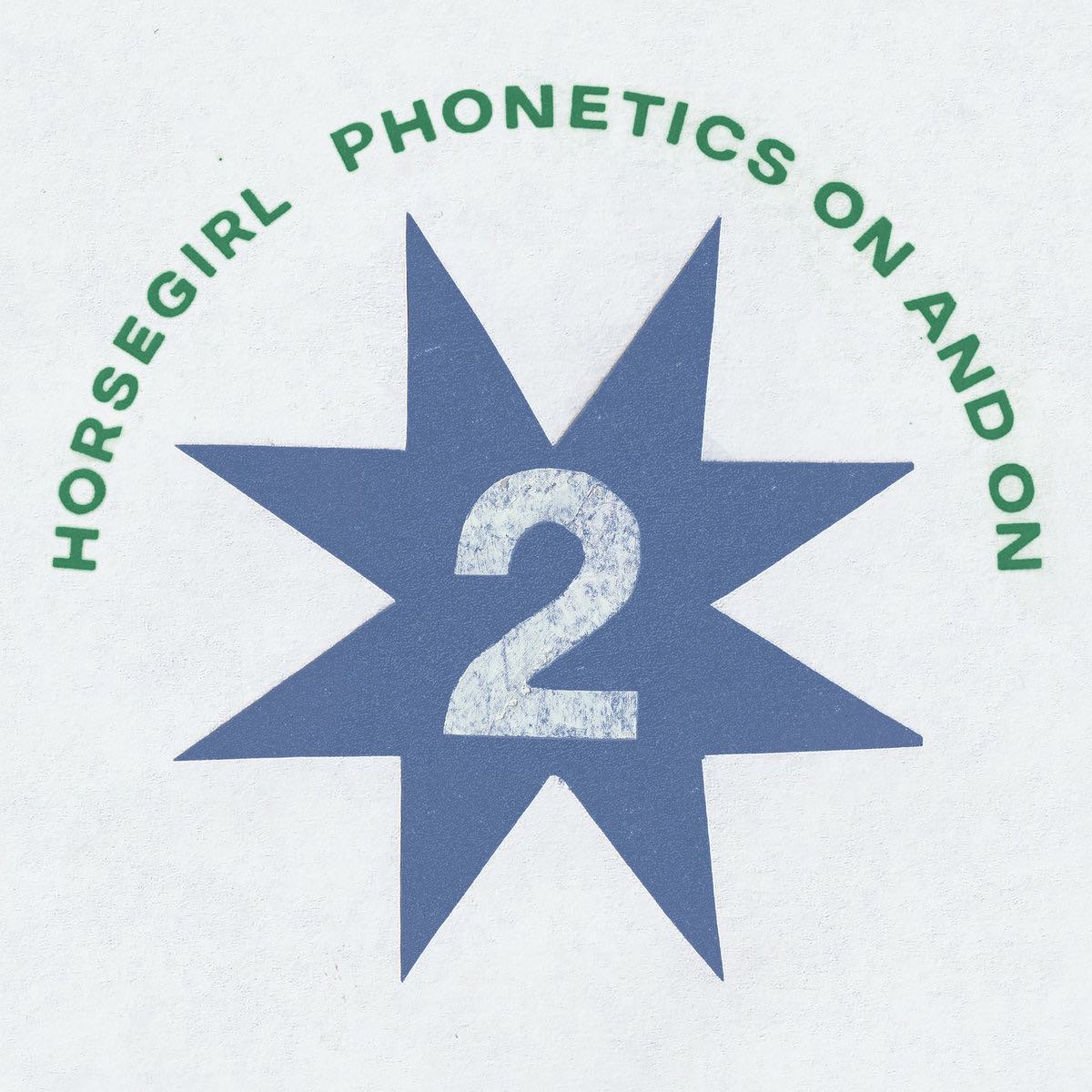Horsegirl
Phonetics On and On
MATADOR
ABOVE THE CURRENT
When I was in Chicago a few years back, I spent a lot of time trudging its snowy streets in a too-thin coat, listening to music created nearby—Liz Phair, Wilco, the albums Stereolab tracked above Rainbo Club. While this served the if-you-squint reverie that I was in the newly gentrifying city Jessica Hopper documented in Night Moves and John Cusack approximated in High Fidelity, it was a newer band called Horsegirl and their big, warm, fuzzy sound that matched the city I experienced. That is, a “boisterous, insular, tiny-big city,” as Hopper tells it—the kind of town where a father-of-three with a Cubs hat insists on covering your tab ostensibly because you’re British and “came all this way,” but actually because it’s that kind of town. Horsegirl’s 2022 debut Versions of Modern Performance was likewise replete with tiny-big generosity: the lovely melodies delivering conspiratorial in-jokes, the drums’ Albini-boom, the thick and boisterous guitars that drowned out any first-album teething pains. It was a record to trust in, as its members did one another and in their city’s youth-led DIY scene.
But Horsegirl’s unit fragmented after Versions, at least geographically, when drummer Gigi Reece and guitarist/vocalist Nora Cheng enrolled at NYU. After seeing out the final year of high school, Penelope Lowenstein joined them. Naturally, Phonetics On and On is their New York City album—one that telegraphs uncertainty, fragmentation, but mostly space. New York doesn’t have much of that, of course, but we’re talking space away from home and all that’s familiar—space to grow, wonder, wander. The plinky, warts-and-all guitar lines are permitted to snake into question mark shapes, answered by herky-jerky, light-on-the-cymbals drum patterns. Minimalist lyrics about walking the block hang between tenement buildings, naked, not competing with the wind of a surging instrumental (or even, for the most part, chords). There’s certainly nothing as cryptic as the line “I’m on the run from the severed leg of my son,” while “2468” and “Switch Over”—the album’s most upbeat songs—have barely a sentence between them, instead deferring to girl-groupy non-lexical vocables.
Unlike Versions, Phonetics isn’t a record that’s had a lifetime of esoteric alt-rock and Kim Gordon worship lovingly poured into it from the safety of Lowenstein’s parents’ basement. While Horsegirl remain tethered to the vibrant scene that nurtured them, they’re also embarking on a find-your-feet experiment of their own, seeing where they can take this thing. Cate Le Bon and Wilco’s venerable studio, The Loft, were on hand to nudge the band through this period of exploration and expansion. The Welsh producer encouraged a fluid, let’s-see-what-happens approach to recording, which is how we wind up with lead single “2468,” a frolicsome, rag-tag, strangely eerie recording that doesn’t have the immediate resonance that the singles from Versions did, instead evoking an upside-down, black-and-white school dance kind of feel and further-afield influences.
The two weeks the band spent in The Loft were the coldest of 2024, and the production freeze-frames that atmosphere, especially on a track such as “Julie”—you can practically hear their breath floating through the air as they shiver atop vintage amps and Lowenstein leads the ensemble through the plodding, bare-bones arrangement. Fortified by her bandmates, Cheng is free to track a first-take fidget up the guitar neck, tripping into seemingly random notes as though just trying to warm her hands—but it’s more so a primitive, subversive burst of Raincoats and Velvet Underground homage. These influences are also suggested by the use of organ and violin throughout the album, and by the “Heroin”-esque cat-screech guitar solos like the one heard on “Where’d You Go?”
“Every good thing that I find, I find I lose,” Lowenstein mumbles on “In Twos,” queuing in a battered violin that croaks out dust as it gets hacked away at, Psycho-but-slow. The song is so sorrowful and minimalist that it throws you for a loop at first, but it’s also emblematic of how deftly Horsegirl have navigated the road onward from Versions, itself so fully realized that it could’ve been a cul-de-sac that spawned a facsimile. The band’s avant-garde inclinations were always around—in the suite of instrumental interludes from Versions as much as in its mysterious, handmade art. But here, those inclinations have been given more TLC, nurtured with different utensils and reference points that coincide with the band’s change of scenery.
The reverse is also true: in many fleeting instances across Phonetics, you can hear the boisterous, energetic Chicago band that shredded through fuzz-pop dins like “Billy” and “Option 8” a couple of years back (you can lead the Horsegirl out of Chicago, but you can’t take away their wormwood-based liqueur drink). This is most apparent during the poppy, motorik ramshackle of “Switch Over,” where Horsegirl dare us to “switch over, switch off.” Unfazed either way, they lah-dah-dah-dah off into the sunset with everything they need.







